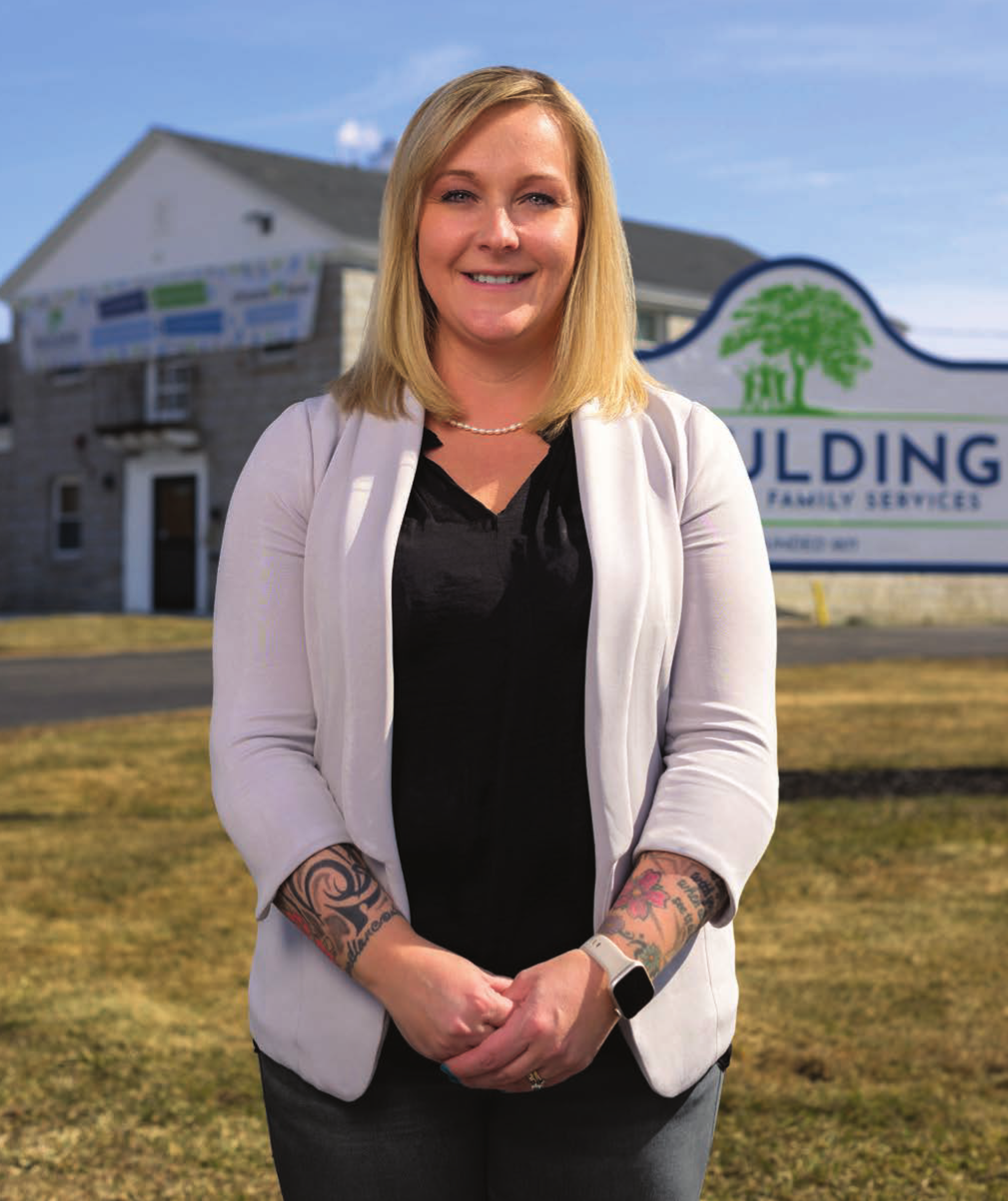Amanda Champagne
Executive Director of Family Services
Spaulding Academy and Family Services
Formerly the residential services director at Spaulding, Amanda has been with Spaulding Academy since 2000, now overseeing residential, health services, medical directors, clinicians, board-certified behavior analysts, and community-based programs including family and social workers. She is also an academic instructor with Granite State College’s Education and Training Partnership, teaching online classes related to child and adolescent development, supporting children with traumatic backgrounds, child welfare, autism and managing severe behaviors. She is also a professional crisis management trainer and a justice of the peace. Amanda serves on the boards of Lakes Region United Soccer and the Tilton and Northfield Youth Assistance Program. She holds an MBA and a MS in psychology, child and adolescent development from Southern New Hampshire University.
• What challenges do you face at Spaulding?
Staffing is always a challenge. Getting qualified staff to understand what we do, understand our mission and our purpose, is a daily challenge. Trying to change the culture of residential care and moving away from the restrictiveness, trying to balance that with more normalized living, even though it is residential care. Trying to make it as normal as possible for kids, so that we can remove that stigma.
That’s definitely something that we’re trying to overcome is really getting the message out about what we’re doing and working with the youth, to adapt our services and programs that we provide so that the kids with differing needs have everything that they need. We provide a robust set of services here at Spalding, but just managing the state contracts, funding, budgeting has always been a challenge over the years.
We’re trying to keep kids out of court. We’re trying to help with preventative services, so that kids don’t end up in trouble.
• What are your leadership values?
I try to be collaborative, so active listening is huge.
What I tend to do is I try to listen and do some solution-oriented problem-solving.
Respect the staff, as well. I try to tell the staff: The kids won’t respect you if you don’t respect them first. Respect is earned.
But also just being kind, being open, being flexible.
Being open-minded and just constant continuous quality improvement, because we’re not perfect. It’s always good to look at what we’re doing and get feedback.
• How important is mentorship to you?
My biggest mentor was the residential director here for 37 years, Gary Lavallee. He took me under his wing. He gave me the dad speech when I needed it.
Mentoring is so important. Sometimes I wish I could go back and just work direct care with the kids, because that’s so much easier than some of the stuff that we have to deal with. But I think for the staff, mentoring is hugely important. We have a number of kids that will go and mentor in different houses, the older kids, the younger kids, the verbal kids, the nonverbal kids. Mentoring is something that makes people grow. And it’s absolutely the only reason why I’m here now.
• What advice do you have for future women business leaders?
Never stop learning. I will be a continual, lifelong learner. You can always learn something.
For a female, oftentimes the confidence is not there.
Sometimes, you have to just have the confidence and then process afterwards, which is not easy to do. But you have to have it, because you won’t ever get it if you don’t.
Work with your mentor to process through some of that stuff. Just keep moving one step forward, even if you have to take some back.
I think a lot of that comes with a fear of failure, especially when we’re trying to grow. But it is important, because how else are you going to learn how to come at something differently or think of creative ways to tackle something that might work? If it doesn’t work, it doesn’t work, and you try something else.
• What are you most proud of?
There were many times that I just wanted to give up and I didn’t. I moved up here, I’ve met my educational goals, and I did all that through a really traumatic divorce with very small children as a single mom. There were many moments that I was like, I’m done; I can’t do this. I’m not an emotional person, but it hits the heart.